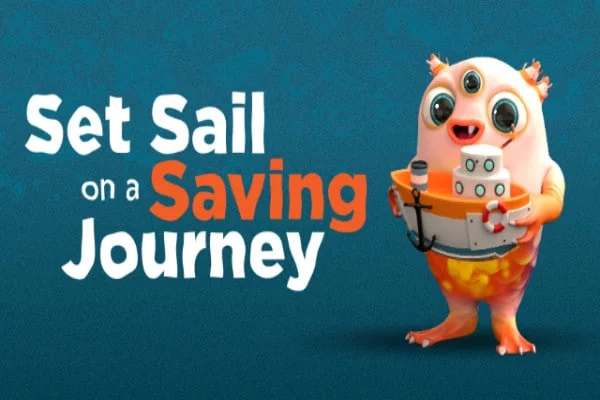Kilkeel Credit Union launches its ‘Junior Savers Week’ this week (September 20th – 26th) to raise awareness on the importance of saving for the future.
Studies* show that giving kids hands-on, real-world experience with money is essential to prepare them financially for adulthood.
In a focus group of Irish parents conducted by the Irish League of Credit Unions and insights company Parents and Brands,* many parents confirmed that physical experiences – like putting coins in piggy bank or savings account, or shopping with a list, was the best way to teach children about money.
*Ashley B. LeBaron, Brigham Young University – 115 study participants: 90 college students aged 18-30, as well as some students’ parents and grandparents. 2018.
*Parents and Brands, 3 day online panel with 60 parents, July 2021.
We have put together some of the top tips for teaching children how to develop a healthy and responsible attitude to money.
- Consider rewarding children for regular saving. Don’t focus on the amount saved, but the fact that they are developing a savings habit. Supporting and rewarding them to save even very small amounts on a regular basis will help to imbed the habit.
- Help decide on a savings goal. They will find it much easier to save regularly when they are savings towards something they really want.
- Dissuade young people from spending their savings on impulse. Remind them of their savings goal and what they originally wanted to save for. Share with them a story of something that you would have saved for when you were younger.
- Help develop a savings plan, calendar or mood-board to highlight when their goal will be achieved. Having a visual prop or a visual ‘countdown’ can also encourage them to stick to their target.
- Give pocket money or allowances in small denominations and encourage them to put a little aside. Giving them a transparent piggy bank or jar so they can watch their money physically increase, is also a good idea.
- Consider linking pocket money and allowances to chores or responsibilities in the home. This helps to embed the idea that money must be earned. The more effort required to earn their money, the less likely they will be to spend on impulse or all at once.
- If pocket money and allowances run out at an early stage, don’t rush to replace them. Providing additional money at the drop of a hat will defeat the purpose of giving a set allowance.
Why not get them to open their own account in Kilkeel Credit Union. This will give them a sense of independence and responsibility.
You can download a fun activity sheet for your kids HERE
For more information on our Junior Saving Accounts click HERE

